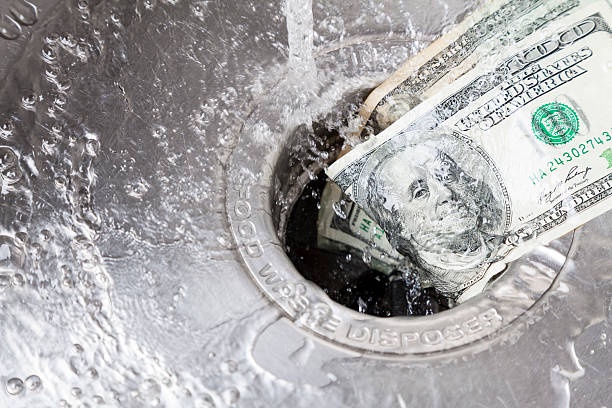Understanding Your Water Bill:
Before delving into the reasons behind an unexpectedly high water bill, it's crucial to understand how these bills are calculated. Typically, water bills consist of a fixed service charge and a variable charge based on the amount of water consumed. The consumption is measured in units, with one unit equivalent to 748 gallons. Monitoring your water usage patterns and staying informed about your bill's components can empower you to identify abnormalities and take appropriate action.
Common Culprits:
- Undetected Leaks: Undetected leaks are notorious for silently driving up water bills. A dripping faucet or a running toilet might seem inconspicuous, but over time, they can contribute significantly to water wastage. Regularly check for leaks in and around your home, addressing them promptly to prevent unnecessary water loss and expense.
- Inefficient Appliances: Aging or inefficient appliances can be major contributors to high water consumption. Old toilets, washing machines, and dishwashers may use more water than their modern, water-efficient counterparts. Consider upgrading to WaterSense-labeled appliances, which are designed to conserve water without compromising performance.
- Landscaping Practices: Beautiful landscaping can come at a cost, especially if it involves high water usage. Automatic sprinkler systems that run excessively or during peak daylight hours can significantly increase your water bill. Opt for smart irrigation systems and consider xeriscaping, a landscaping method that minimizes water usage through the use of drought-resistant plants.
- Daily Habits: Individual habits play a significant role in water consumption. Leaving the tap running while brushing teeth, taking excessively long showers, or running the dishwasher for small loads can all contribute to a higher water bill. Adopting mindful water-saving habits can make a noticeable difference over time.
- Hidden Underground Leaks: Sometimes, the culprit behind a high water bill lies beneath the surface. Undetected underground leaks, including a potential burst pipe, can be challenging to identify but can result in substantial water wastage. If you notice unexplained wet spots in your yard or a sudden decline in water pressure, it's essential to investigate further and address any potential hidden leaks promptly.
Solutions and Water Conservation Tips:
- Regular Maintenance Checks: Conduct regular maintenance checks on your plumbing system, appliances, and irrigation systems. Promptly repair any leaks or malfunctions to prevent water wastage and keep your water bill in check.
- Upgrade to Water-Efficient Appliances: Consider upgrading to water-efficient appliances, such as low-flow toilets, energy-efficient washing machines, and dishwashers with WaterSense certification. While the initial investment may seem significant, the long-term savings on your water bill can make it a cost-effective choice.
- Mindful Water Use: Cultivate mindful water usage habits within your household. Encourage family members to turn off taps when not in use, fix leaks promptly, and be conscious of water consumption during daily activities. Small changes in behavior can collectively lead to significant water savings.
- Smart Landscaping: Optimize your landscaping for water efficiency. Choose drought-resistant plants, group plants with similar water requirements together, and invest in a smart irrigation system that adjusts watering schedules based on weather conditions.
- Regular Meter Readings: Keep track of your water usage by regularly reading your water meter. Monitoring your consumption can help you identify sudden spikes, indicating potential leaks or inefficiencies that need attention.
Conclusion:
In the quest to decipher the enigma of a high water bill, understanding the various factors contributing to water consumption is paramount. By addressing common culprits such as undetected leaks, inefficient appliances, and wasteful habits, homeowners can take proactive steps toward water conservation and financial savings. Embracing water-efficient technologies, adopting mindful water use practices, and investing in regular maintenance checks are key strategies to regain control over water expenses.
As stewards of our planet's precious resources, it is our collective responsibility to use water wisely. By unraveling the mysteries behind soaring water bills and implementing sustainable practices, we can not only reduce our environmental footprint but also enjoy the financial benefits of a more efficient and conscientious approach to water consumption.


No comments yet